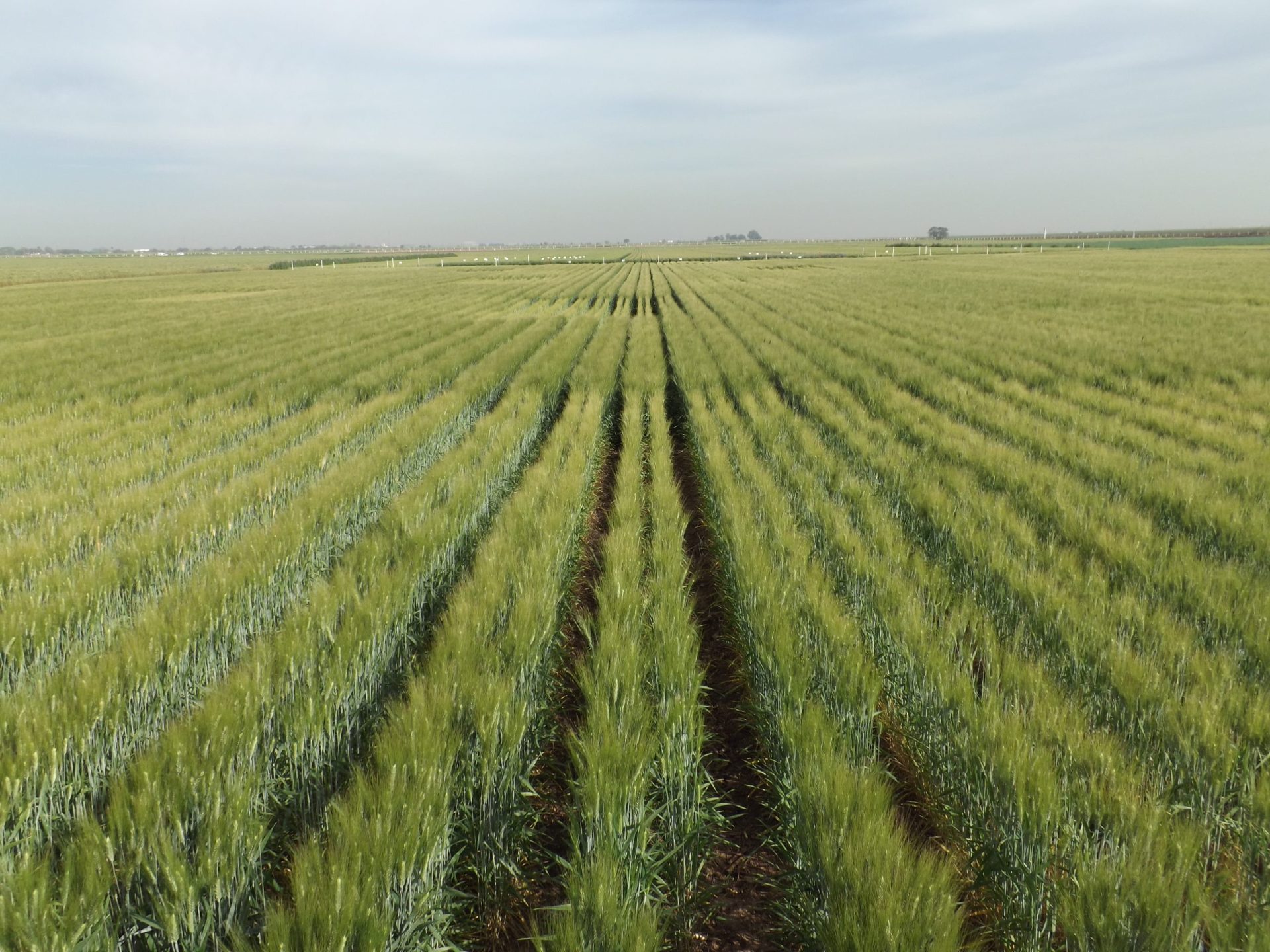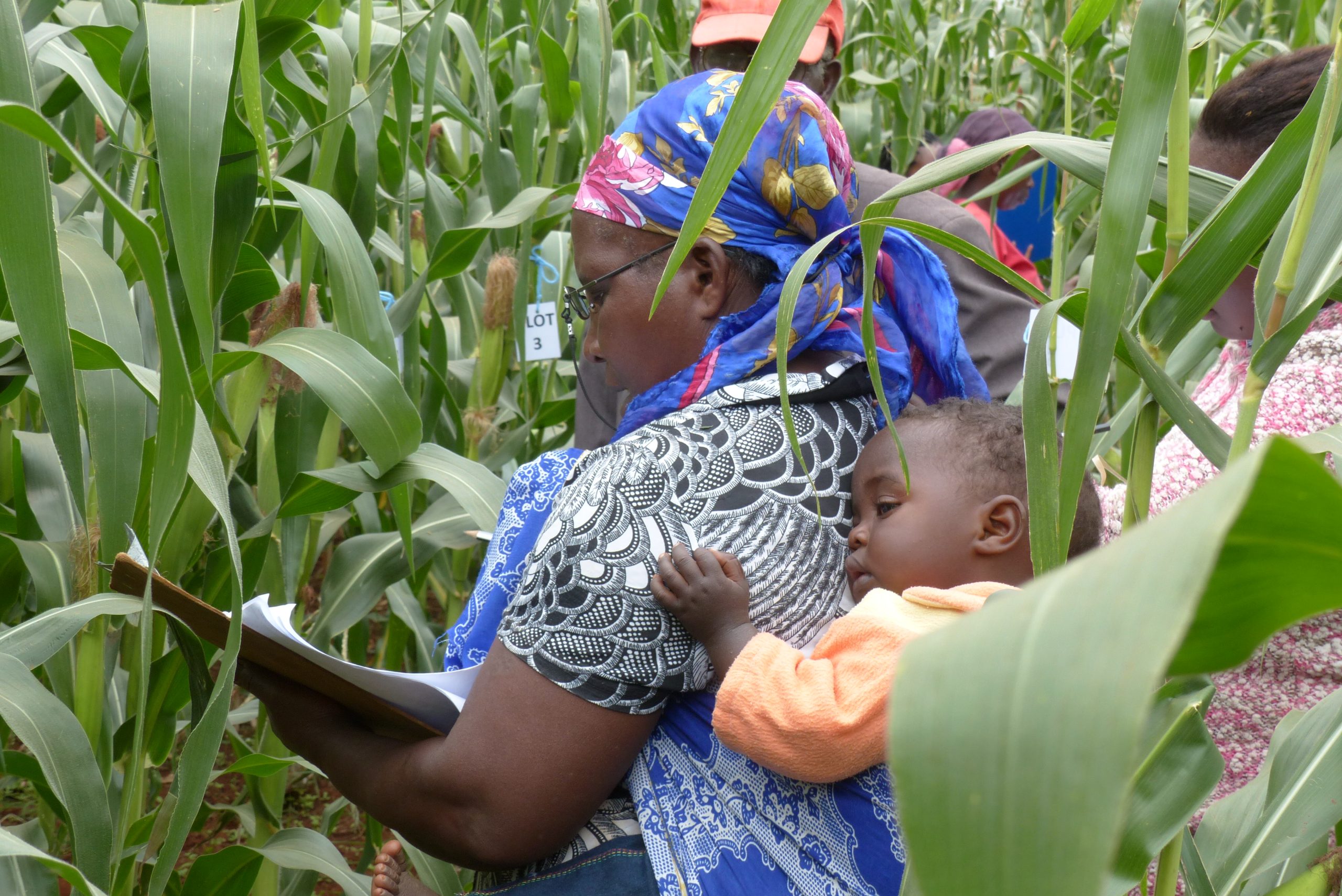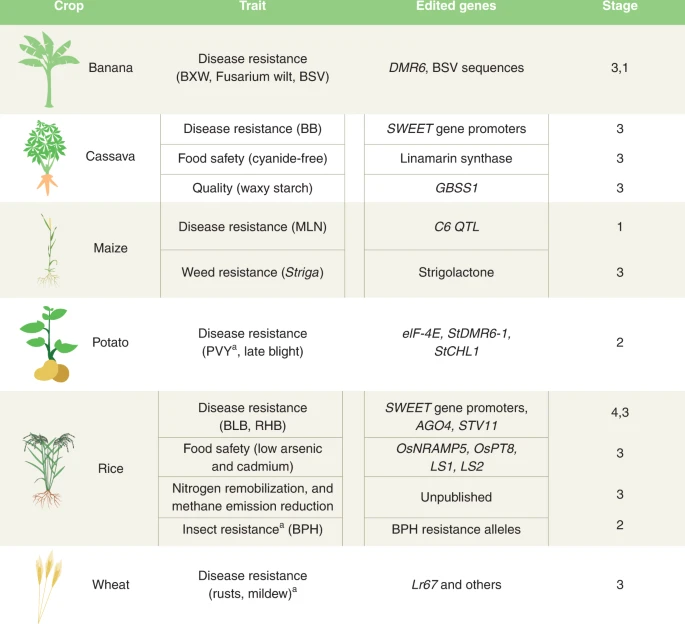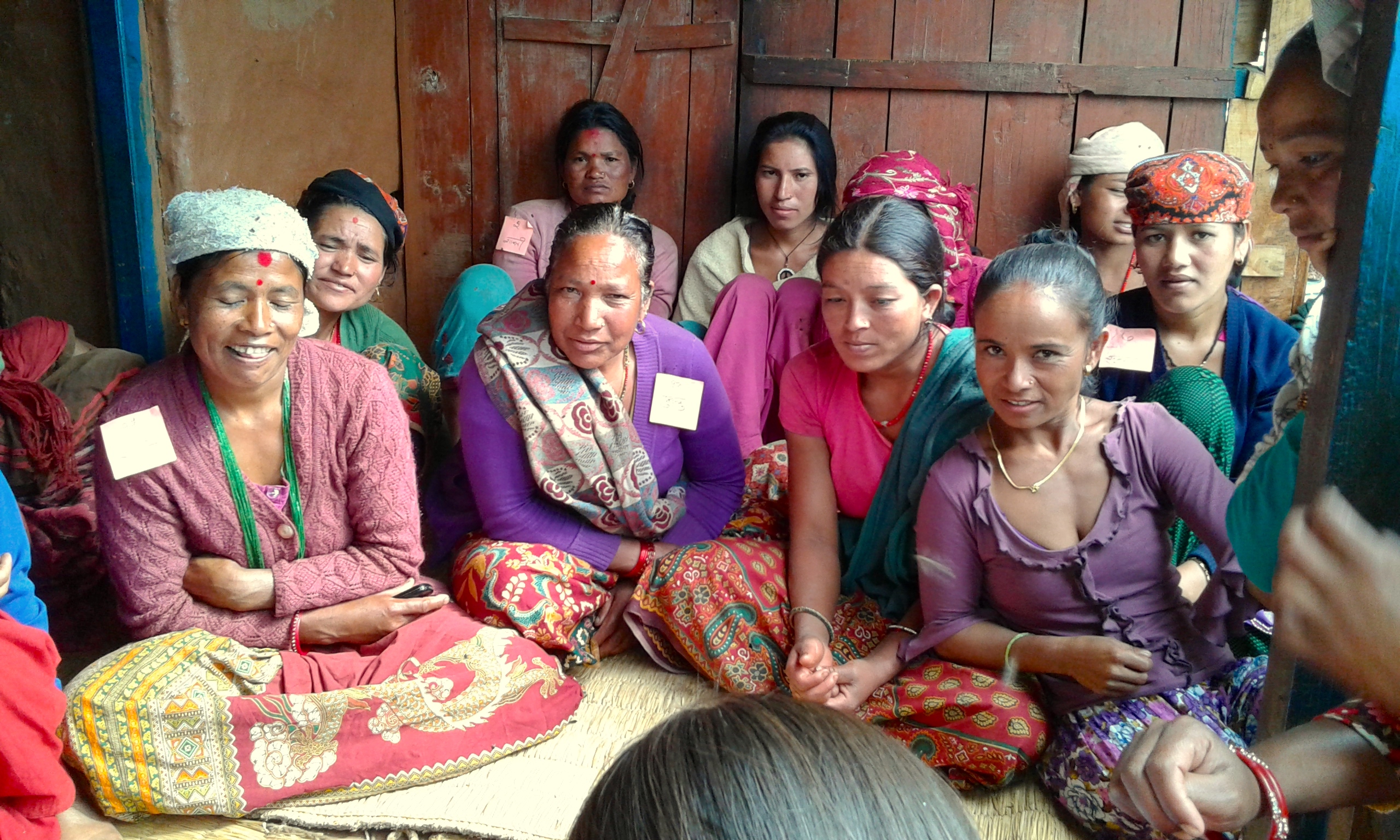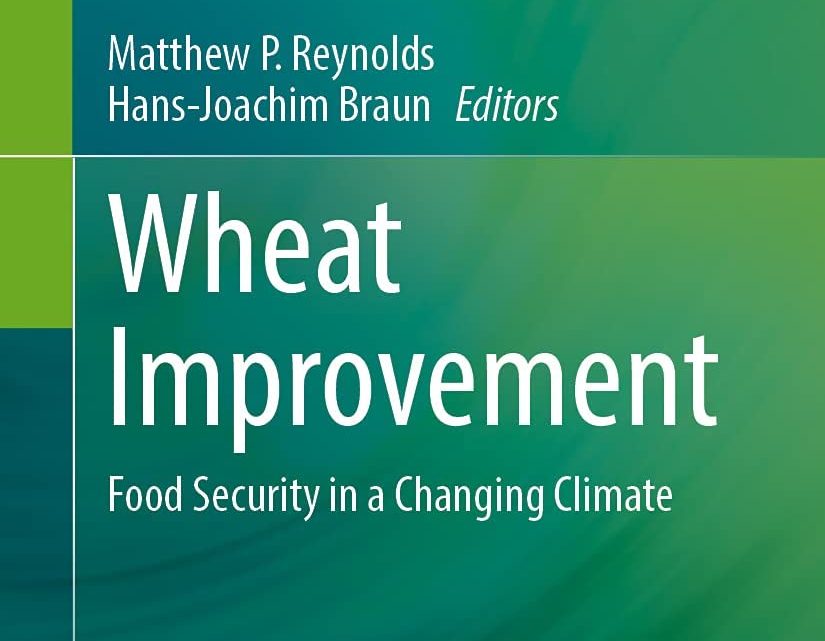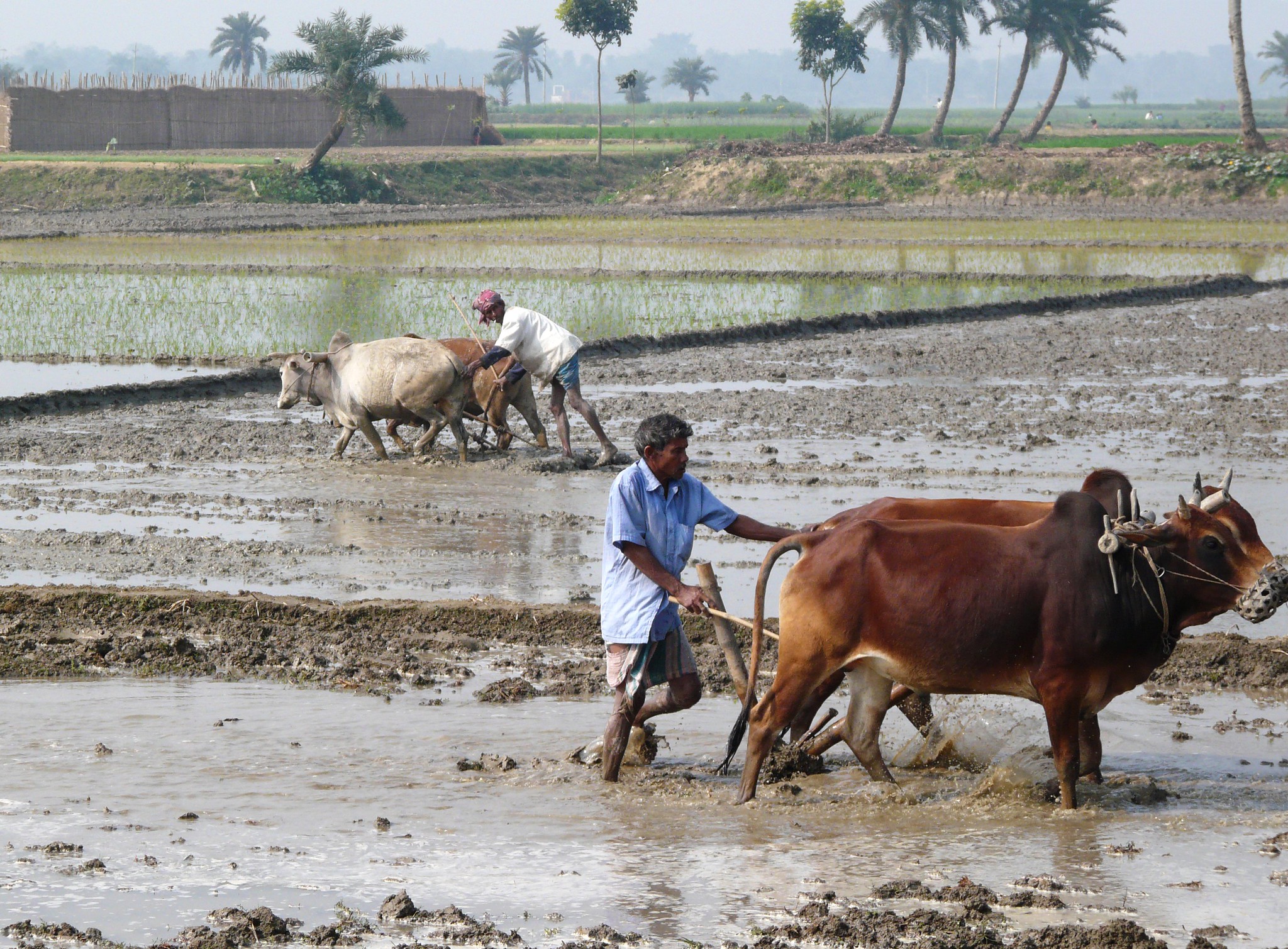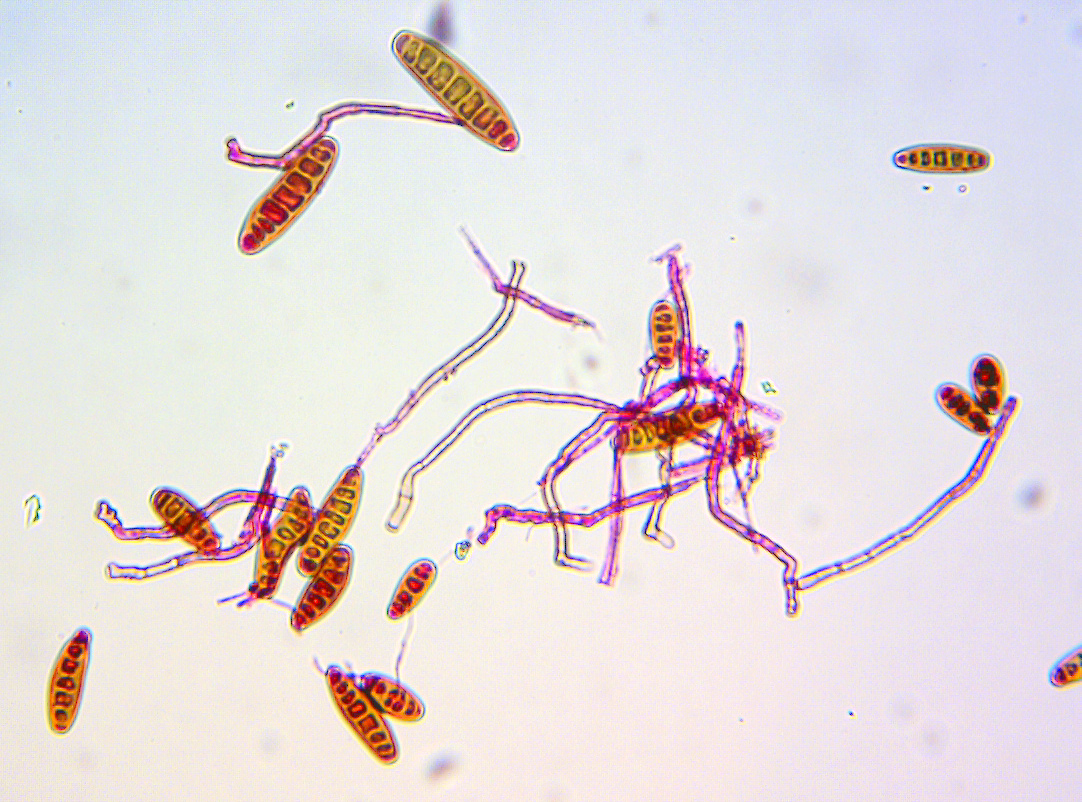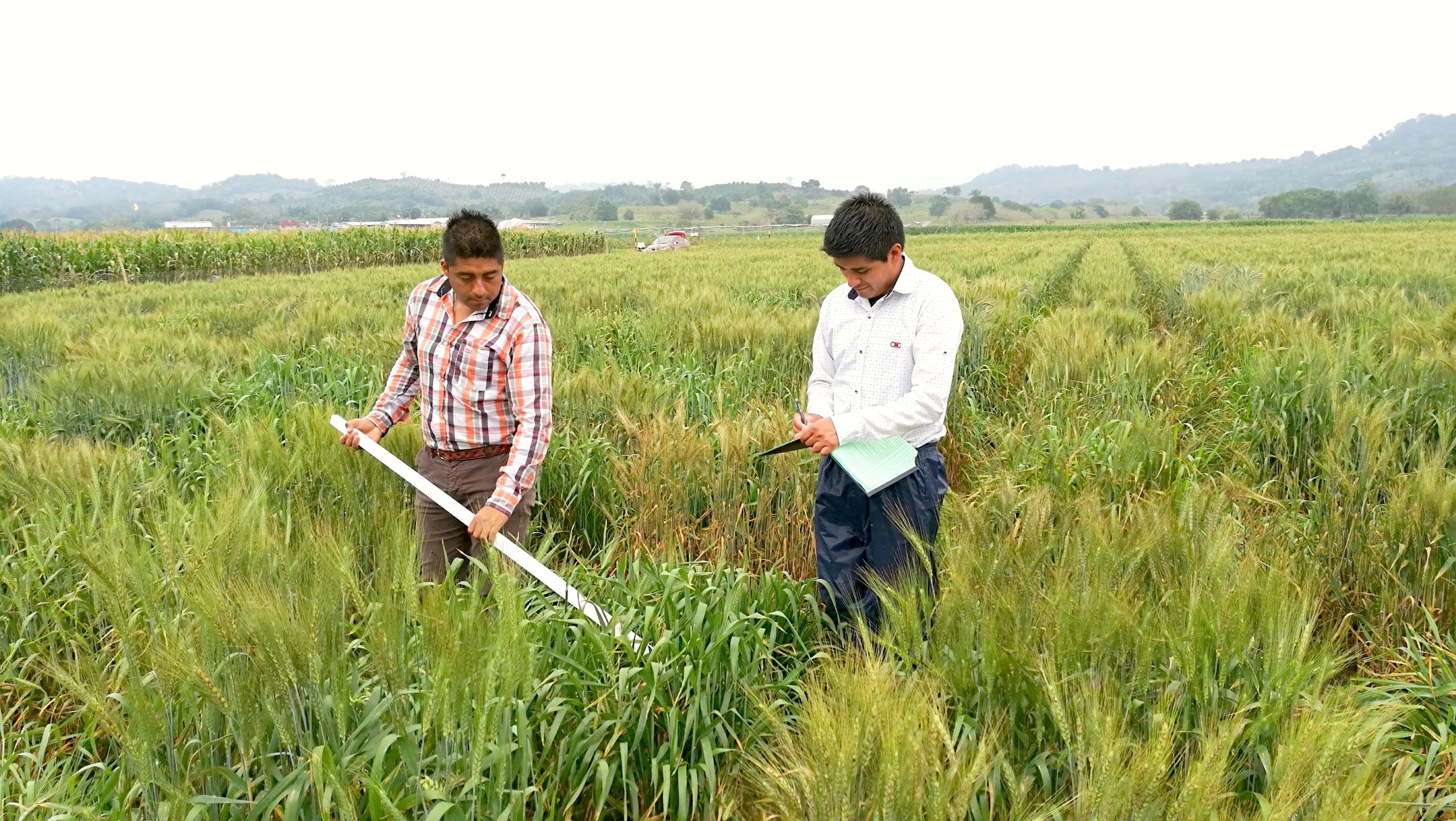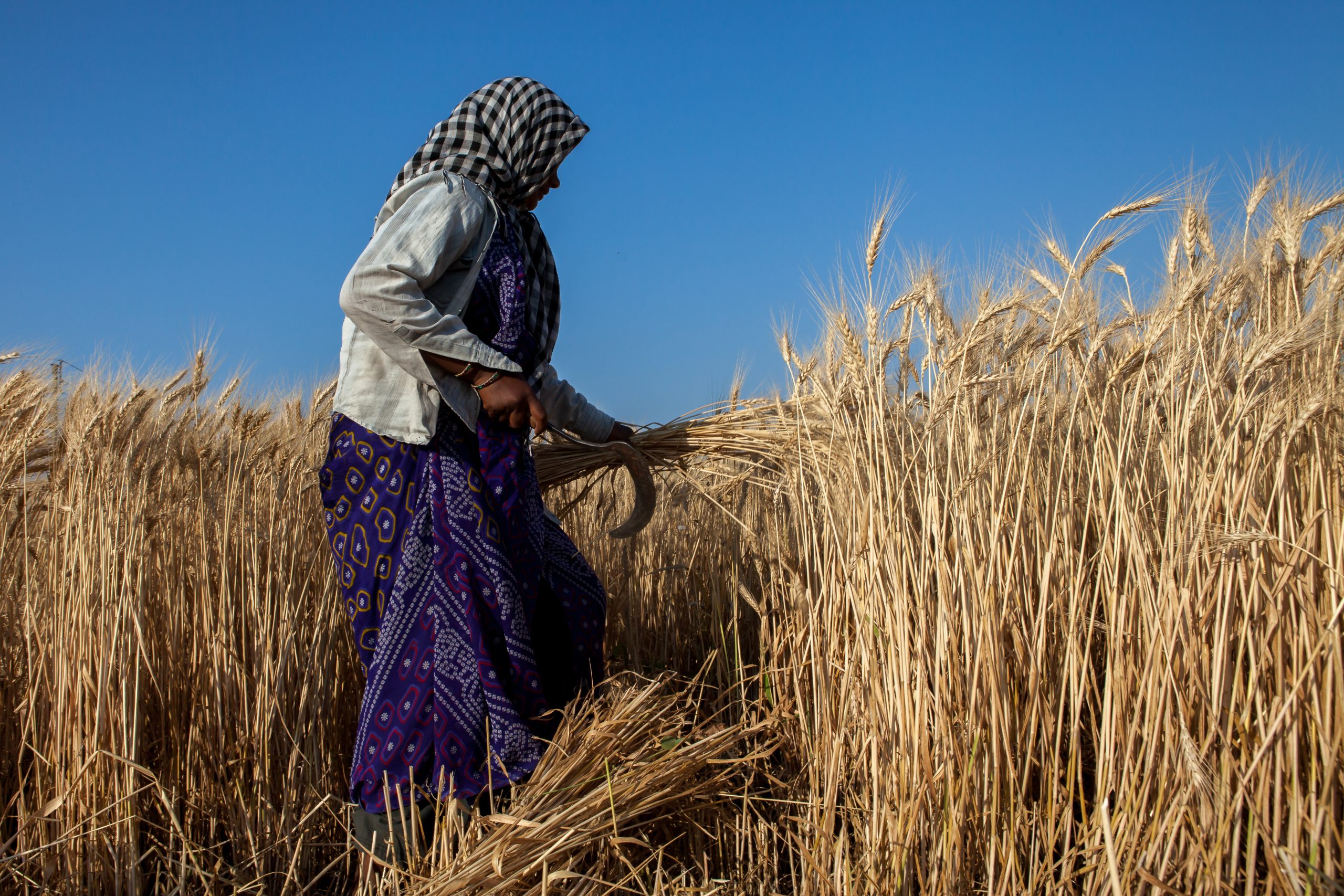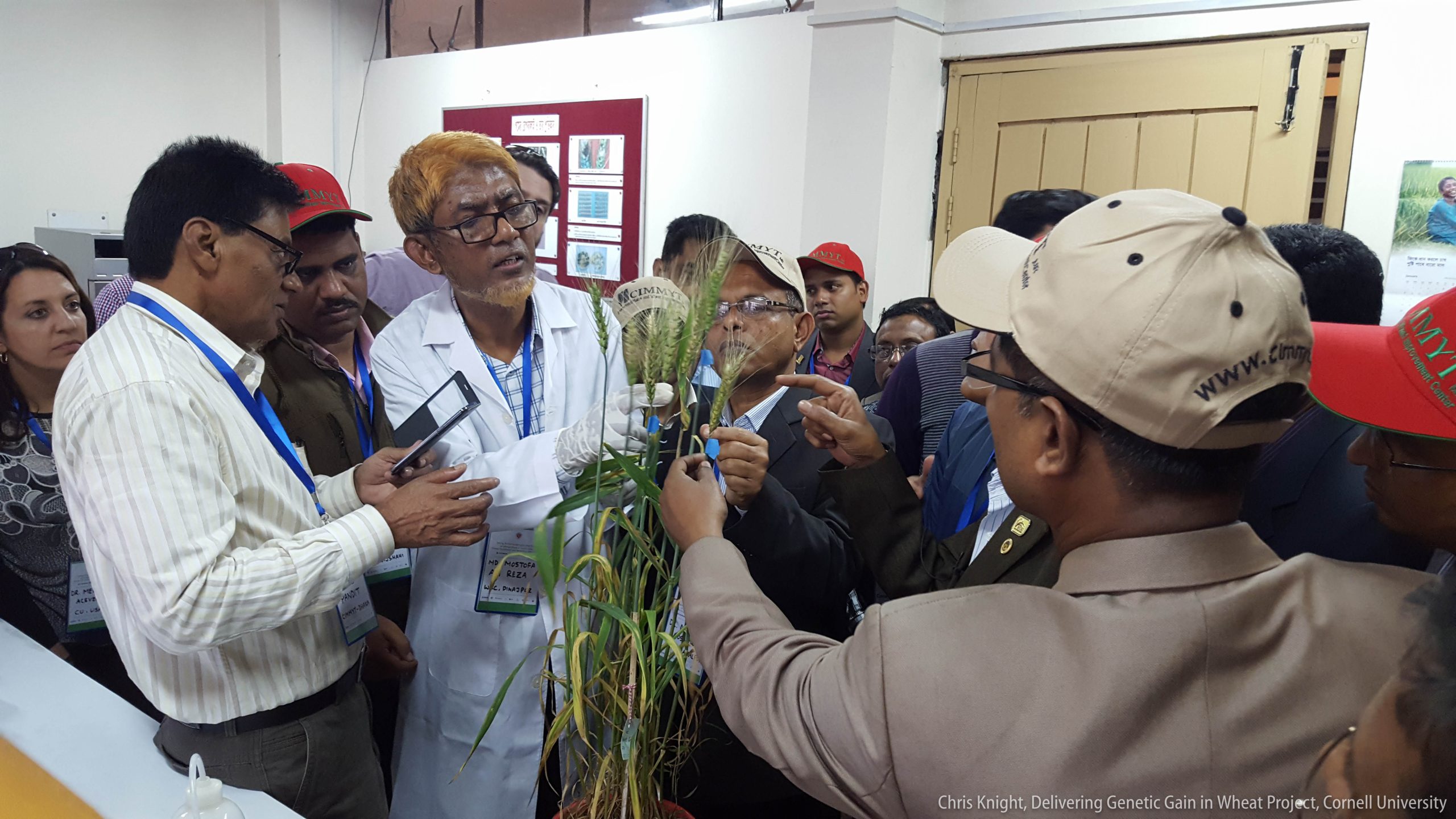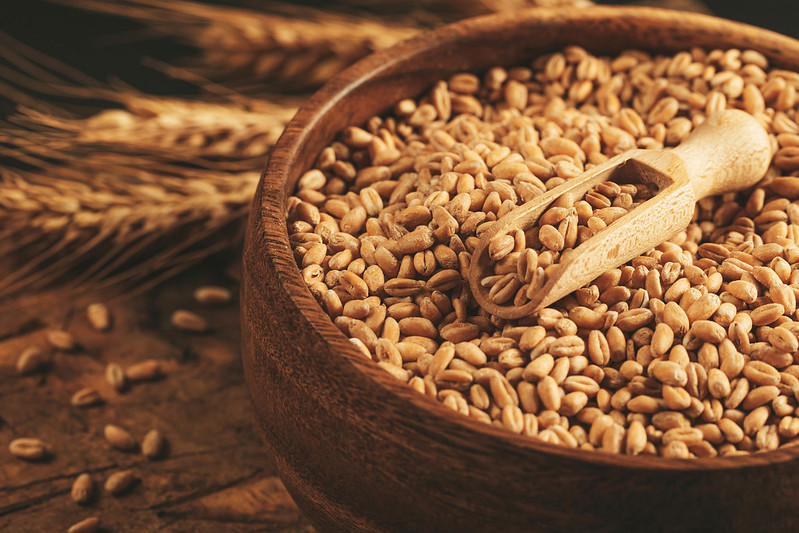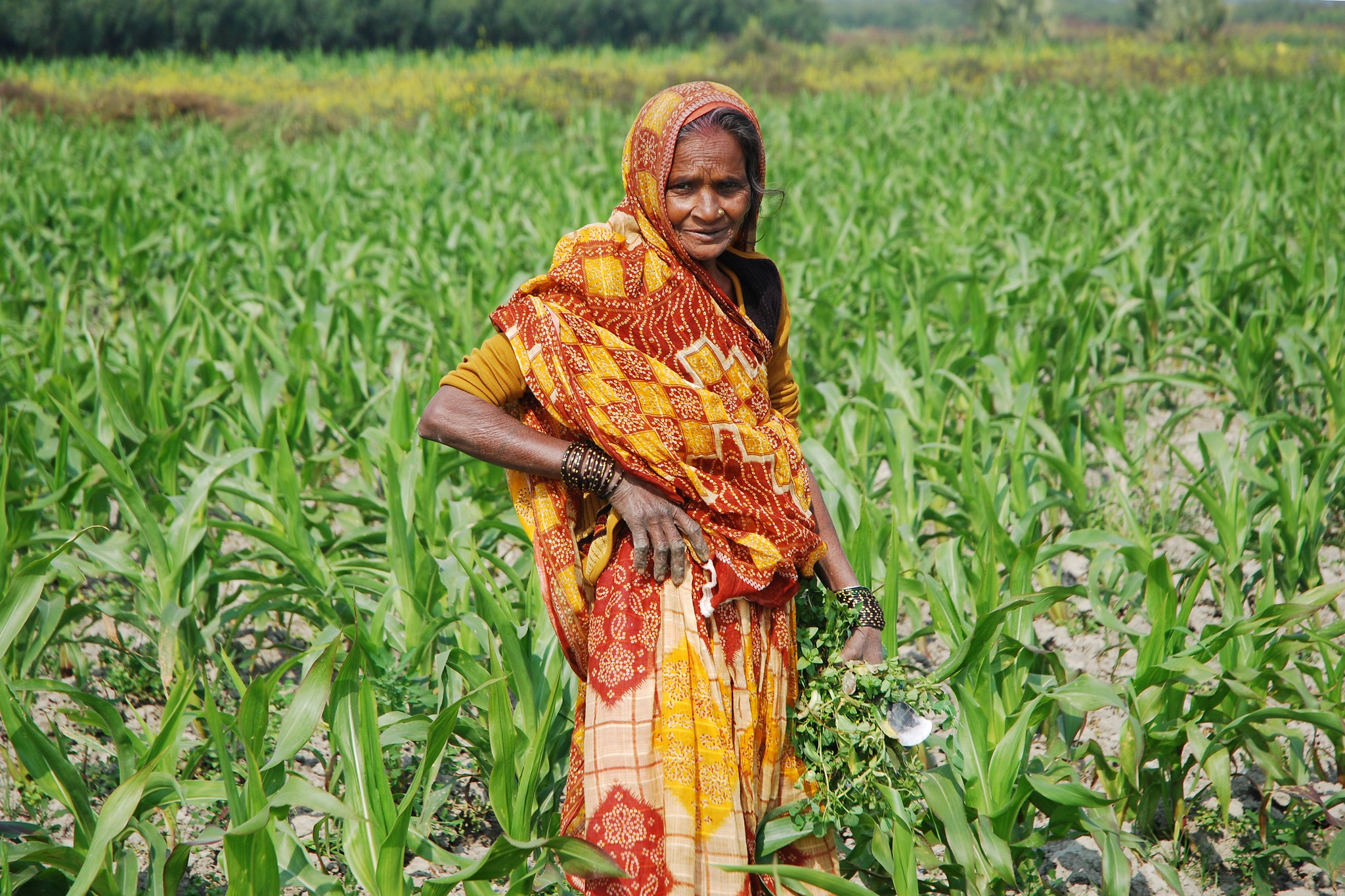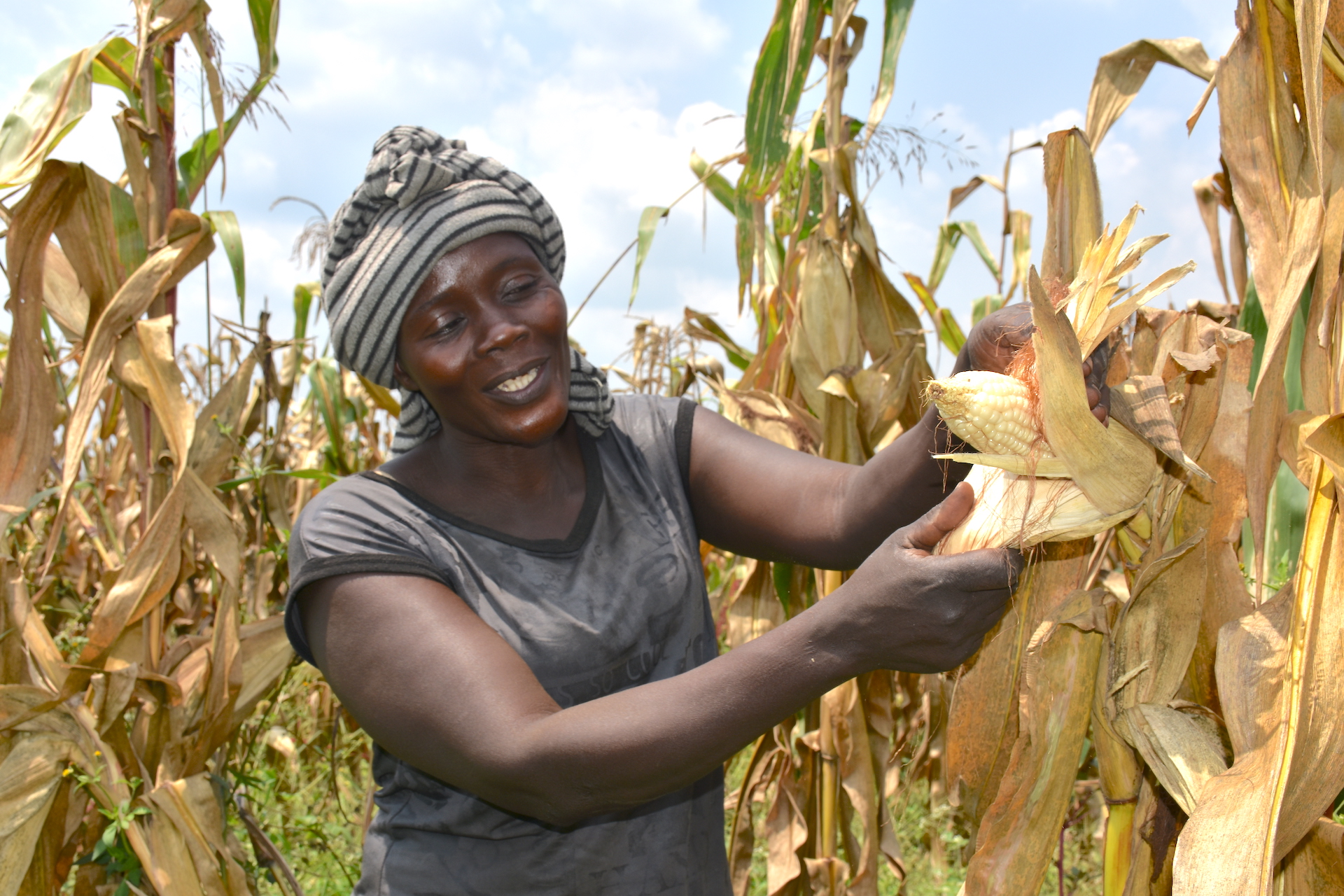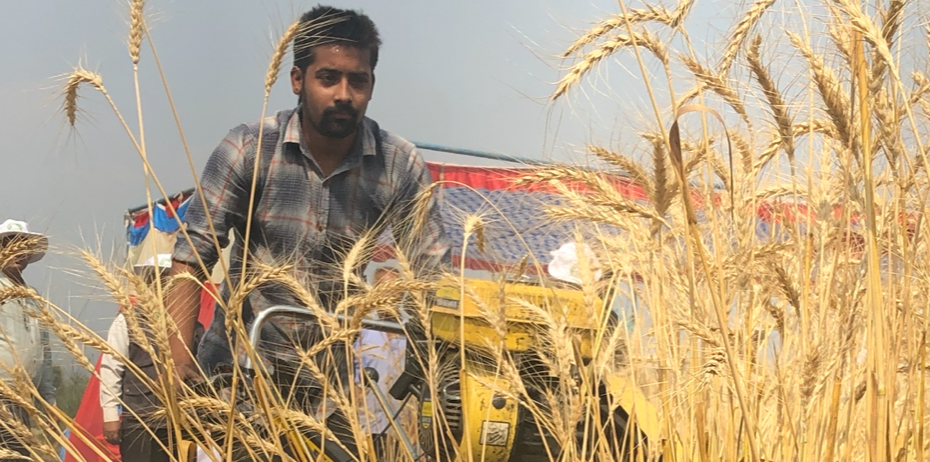Publications
Understanding the role of organic material application in soil microbial community structures
 Climate adaptation and mitigation
Climate adaptation and mitigation
This metagenomics study examines how application of organic material alters soil microbial populations and functionality in soil from permanent beds with residue retention.
Novel technology to reduce the complexity of maize seed production and increase maize hybrid yields in farmer’s fields
 Capacity development
Capacity development
Collaborative field evaluations reveal promising results for sub-Saharan Africa’s low input maize farming systems and commercial seed production.
Untapped potential of genome-edited crops explored in new research
 Nutrition, health and food security
Nutrition, health and food security
Analysis of evidence by scientists of the International Maize and Wheat Improvement Center (CIMMYT) and CGIAR concludes that the scientific risks of genome editing are similar to those of traditional breeding.
Cereal seed value chains in Nepal
 Nutrition, health and food security
Nutrition, health and food security
A new study provides deeper insights into improving the performance of the country’s rice and maize seed value chains.
Wheat improvement: Food security in a changing climate
 Capacity development
Capacity development
New textbook covers all aspects of wheat improvement, as well as rapidly evolving technologies and their potential to accelerate genetic gains and adaptation.
Galvanized leaf storage proteins serve as a nutrient lifeline for maize under drought, recent study says
 Climate adaptation and mitigation
Climate adaptation and mitigation
A team of researchers activates vegetative storage proteins in maize leaves, to stockpile nitrogen reserves for release when plants are hit by drought.
A climate-smart remodeling of South Asia’s rice-wheat cropping is urgent
 Environmental health and biodiversity
Environmental health and biodiversity
Multiple studies show conventional farming practices degrade soils, deplete aquifers and feed rampant greenhouse gas emissions.
Two approaches better than one: identifying spot blotch resistance in wheat varieties
 Environmental health and biodiversity
Environmental health and biodiversity
Genomic selection is a promising tool to select for spot blotch resistance and index-based selection to select for spot blotch resistance, heading and plant height.
CIMMYT scientists identify novel genomic regions associated with spot blotch resistance
 Environmental health and biodiversity
Environmental health and biodiversity
Researchers use genome-wide association mapping approach to identify new regions with resistance to the disease.
New publications: Caste-gender intersectionalities in wheat-growing communities in Madhya Pradesh, India
 Gender equality, youth and social inclusion
Gender equality, youth and social inclusion
Study reveals gaps and interactions between caste, gender and agricultural decision-making.
New publications: Genome-wide breeding to curtail wheat blast
 Environmental health and biodiversity
Environmental health and biodiversity
Researchers evaluate the use of genomic selection in wheat breeding against deadly fungal disease.
Cereals research for sustainable health and well-being
 Nutrition, health and food security
Nutrition, health and food security
The current focus in nutritional circles on micronutrient malnutrition and unhealthy eating habits has raised questions about continuing to invest in research on energy-rich cereal crops and related farming systems.
Climate-smart strategy for weed management proves to be extremely effective
 Climate adaptation and mitigation
Climate adaptation and mitigation
Results of an 8-year study show that weed density and diversity are greatly reduced when zero-tillage, drip-irrigation, and new crops are introduced to rice-wheat systems.
Can Uganda attain zero-hunger?
 Nutrition, health and food security
Nutrition, health and food security
New study projects food demand in 2030 and considers the implications for meeting the Sustainable Development Goals.
Cereal grain harvesting and post-harvest machinery in Nepal
 Poverty reduction, livelihoods and jobs
Poverty reduction, livelihoods and jobs
National value chain study presents an overview of the country’s maize, wheat and rice harvesting equipment, from manufacturing and imports to farm-level service provision.
